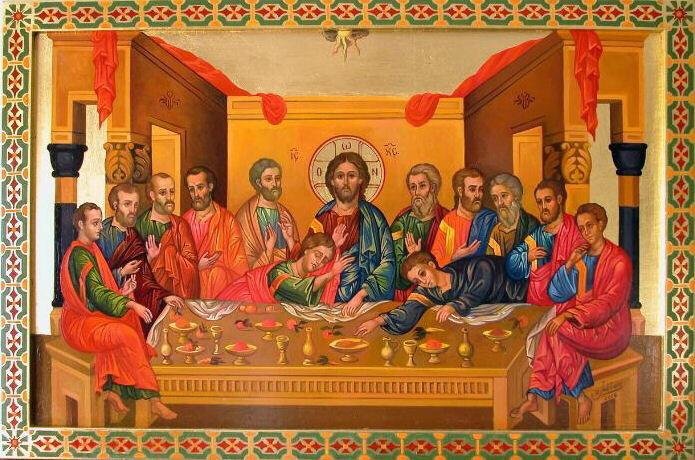
Mystical Supper
As I have previously shared with my readers, although the Divine Liturgy has several distinct parts, nevertheless it is a single, though multifaceted, sacred rite, a single sacrament, in which all its “parts,” their sequence and structure, their coordination with each other, the necessity of each for all and all for each, manifests to us the inexhaustible, eternal, universal and truly divine meaning of what has been and what is being accomplished.
Such in any case is the tradition of the Church, such is her living experience, in which the sacrament of the eucharist is inseparable from the divine liturgy. For its setting, its entire sequence, order and structure consist in manifesting to us the meaning and the content of the sacrament, in bringing us into it, in converting us into its participants and communicants. It is meant to involve all of us into the mystery of God revealing Himself to us through the Person of Jesus and calling us to greater union with God. That is why it is critical that we all, both clergy and laity, own the actions and prayers that we perform together. It is OUR WORSHIP of God as Church, that is the gathering of those who believe in Jesus, the Christ.
Meanwhile, it is precisely this unity, this integrity of the eucharist, the indissoluble link of the sacrament with the Liturgy, that requires us not to think just of one moment or action in the Liturgy, like the transformation of the Gifts, but rather to embrace the entire ritual action. The entire Liturgy speaks to the question: what is accomplished in the eucharist? If for the Church not only the answer to this question but also the question itself, (i.e., its correct “context,” is rooted in the liturgy), it is because for her, the Church, the eucharist is the crowning and fulfillment of the liturgy, just as the liturgy is the crowning and fulfillment of the entire faith, the entire life and the entire experience of the Church.
What I am trying to say is that the Eucharist, which is the presence of the Body and Blood of Christ in our midst, is a part of the entire liturgy which calls us to be one with all the past events of God breaking into history and showing us how to live. This real and truthful remembrance of these past events is meant to “transform” as well as the Gifts that we pray over and offer to God. It is through the Eucharist that we truly become Church, that is real believers in God-Incarnate, Jesus. It calls us to unity in the Lord! It highlights the meaning of life, that is real, personal transformation.
